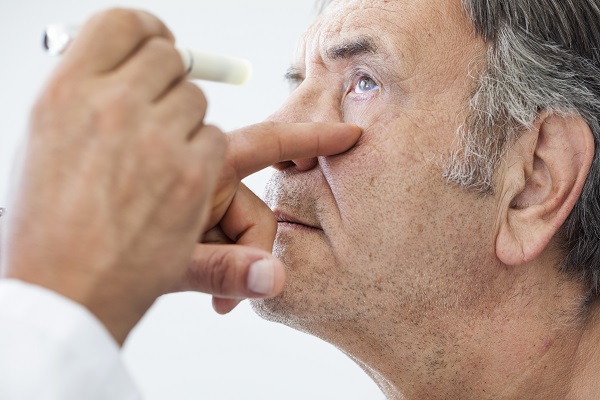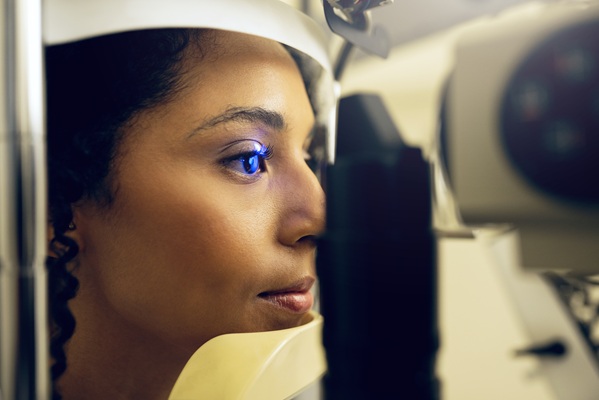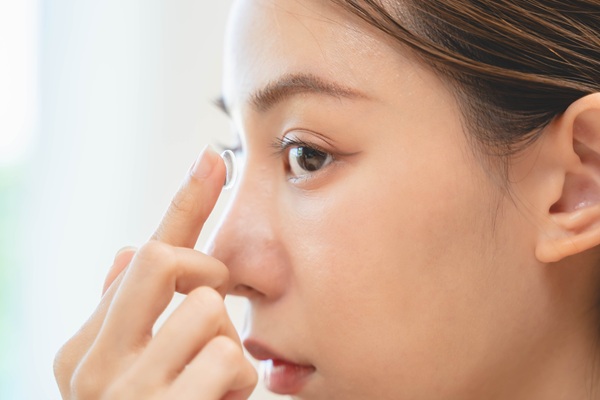Diabetic Eye Exam

There are various health conditions that can impact one's ability to see, even though the condition is nowhere near the eyes. One such condition that can do this is diabetes. A diabetic eye exam can be the difference between having clear vision and permanently losing one's eyesight.
Diabetic eye exams are offered at Texas Optical in Dallas and the surrounding areas. People with diabetes have an increased risk of developing eye problems like glaucoma. The disease can damage the tiny blood vessels that feed the retina, which relays data of images to the brain. This condition is known as diabetic retinopathy.
If you have diabetes and wish to schedule an appointment, call us today.
Seeking a diabetic eye exam once a year
Since people with diabetes have a higher risk of losing their eyesight, it is essential to receive a checkup at least once a year. At Texas Optical, our team can help provide a diabetic eye exam under the guidance of our team. As an optometrist, we have the specific tools and knowledge to examine the back of the patient's eyes much better than a general doctor can. Regular eye exams become even more important if the person is already experiencing problems with their eyes due to diabetes.
Many eye disorders do not have any symptoms until irreversible damage has already occurred to the person's eye. It is one of the many reasons why getting a diabetic eye exam once a year is so important. The early stages of diabetic retinopathy will not cause any changes to the affected person's eyesight, but the condition can damage eyesight in the later years. With early detection, we can help to prevent the issue from getting worse.
During diabetic eye examinations
We will examine the patient's vision using a Snellen chart. These vision charts are a common tool in many eye clinics. The optometrist will also dilate the patient's pupils with eyedrops, this prevents the retina from closing when light is shined into it. We can then get a better view of the back of the eye. Some patients feel a slight sting when the doctor administers the eye drops, while others experience a metallic taste.
With the eyes dilated, the optometrist uses a magnifying instrument and a bright light to look into the person's eyes. Through the retina, the doctor can view:
- The back of the eye
- The blood vessels that feed the retina and other parts of the eye
- The optic nerve and the surrounding area
We may also take a close look at the patient's cornea (the transparent surface of the eye) using a slit lamp. Photos of the retina can also be useful for further evaluation. This helps to determine if the patient needs further testing.
What to expect after a diabetic eye examination
If the patient's eyes were dilated, they will have blurred vision for up to six hours. They will also have a harder time focusing on objects close to their eyes. It is best to arrange transportation back home before the appointment.
The patient's eyes will also be more sensitive to light when dilated. Thus, the risk of sustaining damage from sunlight is higher. Patients will be given sunglasses to wear until the effects of the eye drops wear off and their retinas return to normal.
Treatment options for diabetic retinoscopy
If the patient has this condition, the treatment options explored will depend on the severity. The early stages can be combated by better blood sugar regulation while we closely monitor the patient. Treatment options for the advanced stages include:
- Photocoagulation – this stops leakage of the blood vessels and fluids in the person's eye
- Panretinal photocoagulation – it is used to shrink damaged blood vessels
- Vitrectomy – this is used to remove any blood accumulating in the middle of the eye
- Medications injected into the patient's eyes
- Surgery
We will go over the possible options and determine the most effective course of action for your needs. Request an appointment here: https://www.texasoptical.net or call Texas Optical at (214) 771-7333 for an appointment in our Dallas office.
Check out what others are saying about our services on Yelp: Read our Yelp reviews.
Recent Posts
For those living with diabetes, undergoing a diabetic eye exam is one of the most important steps in protecting their vision and overall eye health. High blood sugar levels can lead to a range of complications, including conditions that damage the eyes over time. These exams help detect these issues before they become serious, allowing…
Contact lenses provide clear vision and convenience for individuals who prefer an alternative to eyeglasses. However, proper care and maintenance are essential to prevent infections, irritation, and eye damage. Neglecting hygiene practices can lead to serious eye conditions, including corneal ulcers and keratitis. Understanding how to clean, store, and handle contact lenses ensures long-term eye…
Maintaining eye health and preventing long-term issues is the result of consistent and quality vision care. Many people focus on overall wellness but may overlook daily habits that support healthy eyesight. However, taking simple steps each day can protect vision, reduce eye strain, and prevent future complications. By making eye health a priority, it is…
Prescription contacts provide vision correction, comfort, and convenience for those who do not want to wear glasses. However, caring for and wearing contacts takes some getting used to. Learning to insert, remove, and maintain them will help ensure a comfortable and safe experience.Not all contact lenses are the same, and choosing the right pair is…


